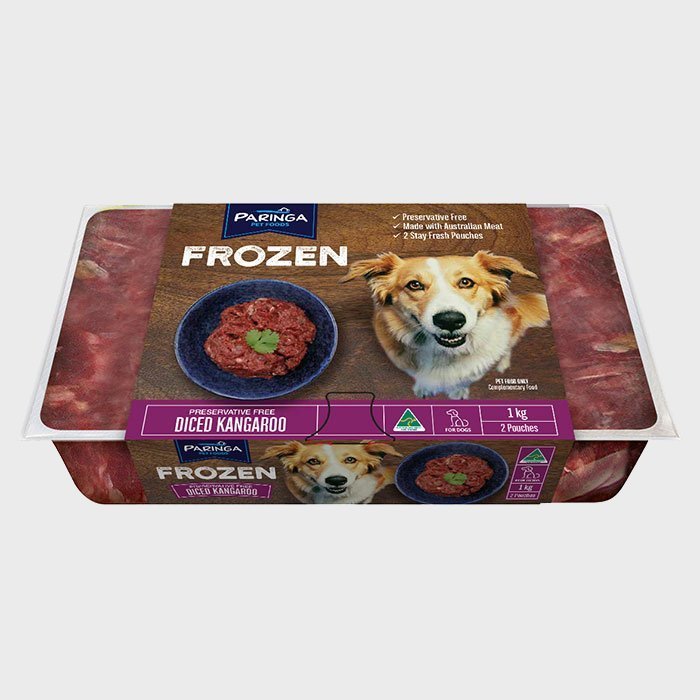Food allergy in dogs: symptoms & treatment
Food allergies in dogs are more common than you’d think and they’re on the rise. It’s estimated that up to 15% of household dogs may be affected.
What is a food allergy in dogs & what causes it?
A food allergy in dogs is an immune response to a particular substance in their food. A dog food allergy can develop to almost any protein or carbohydrate in their dog food. Common culprits include beef, chicken, lamb, wheat, corn, soy, eggs, dairy or food additives. Dog food allergy can develop at any age. Even if the dog has been on the same diet for a long time, a reaction can arise unexpectedly.
Symptoms of food allergy in dogs
Here are some of the symptoms of food allergy in dogs to watch out for:
• Scratching, chewing and licking which can lead to redness and hair loss
• Diarrhoea
• Vomiting
• Frequent ear infections
• Poor quality coat
• Respiratory issues
• Watery eyes and nose
• Red/brown nail beds which indicates inflammation (they should be white)
Other types of allergies in dogs
Bear in mind that there are other types of allergies that dogs may suffer from and these often have the same sorts of symptoms, so it can be hard to diagnose a food allergy in dogs. A contact allergy causing skin irritation could occur to pesticides on the lawn, flea treatments in collars, wool or synthetic fibres in their bed or carpet.
Dogs can also suffer an allergic reaction to pollens, dust mites, mould or bites from insects. Regardless of what type of allergy you suspect your dog suffers from, you should see your vet for a proper diagnosis.
How to treat a food allergy in your dog
Unfortunately, there are no reliable tests to diagnose food allergy in dogs. The only effective treatment is to avoid eating the food that causes the problem. The way to determine this is by using an elimination diet.
On an elimination diet, you’d generally pare back your dog’s diet so you’re feeding a highly digestible dog food with a minimal number of ingredients, excluding the common allergens. If you see an improvement of your dog’s symptoms after a few weeks then you’d begin to slowly reintroduce one ingredient per week in their dog food and watch for any reactions. Remove the ingredient from the dog’s diet again if you get a reaction. Some experts recommend keeping the dog on the elimination diet for several months before reintroducing foods. It’s best to see your vet to get advice.
Some people swear by a raw food diet for their dogs as a cure-all to dog food allergies. Research suggests that a raw food diet may be beneficial for dog food allergies but it may not work in all cases.

Tips for suspected dog food allergies
- Choose a dog food that is minced well to improve digestion. Regal BARF is a great option if you’re feeding a raw food diet, need good digestibility and want to avoid preservatives. An easy to digest cooked option is our Toppers in Beef, Chicken or Puppy. Dry kibble has already had the protein ground so is fine as is.
- Choose a dog food with a limited sources of protein. This makes it easier for you to identify which protein may be causing the problem. Here are three products from the Paringa range that feature a single source of meat protein each: Preservative-free Diced Roo 1kg Minced Beef 5kg Minced Chicken Frozen 1kg Roll.
- Make sure that if you’ve changing your dog’s diet that you do this gradually over the course of a week to prevent upset tummy. Some dog owners blame the new food if their dog reacts to it with vomiting or loose stools but they may not have allowed their dog enough time to make the transition. See our page on Changing Dog Food for more detail.
- Rule out other causes of gastro issues before deciding that your dog has a dog food allergy. Other issues could be viruses, bacterial infections, parasites or food intolerance to a dog food that has too much fat or too much fibre.
- If your dog is on an elimination diet you need to be very careful that they don’t ingest other food. This includes digging up old bones from the garden, eating lizards, family food scraps and some medications.
“Some people swear by a raw food diet for their dogs as a cure-all to dog food allergies”.

